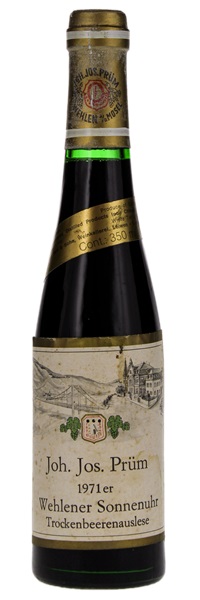Capsule condition issue; lightly depressed cork; signs of past seepage; 3.5 cm ullage; light label condition issue
Removed from a temperature and humidity controlled wine storage unit; Purchased from a private collector; Consignor is second owner
Capsule condition issue; depressed cork; signs of past seepage; light label condition issue
Removed from a temperature and humidity controlled wine storage unit; Purchased from a private collector; Consignor is second owner
Heavy capsule condition issue; depressed cork; signs of past seepage; label condition issue
Removed from a temperature and humidity controlled wine storage unit; Purchased from a private collector; Consignor is second owner
Capsule condition issue; signs of past seepage; label condition issue
Removed from a temperature and humidity controlled wine storage unit; Purchased from a private collector; Consignor is second owner

Image above is an example. To view the image of the lot, click the item number.
Estimate
Still rather closed after 20 years in the bottle, the powdery herb and dried apricot aromas grow in the glass. Extremely rich, sweet and well structured with a dazzling finish, but neither opulent nor heavy.